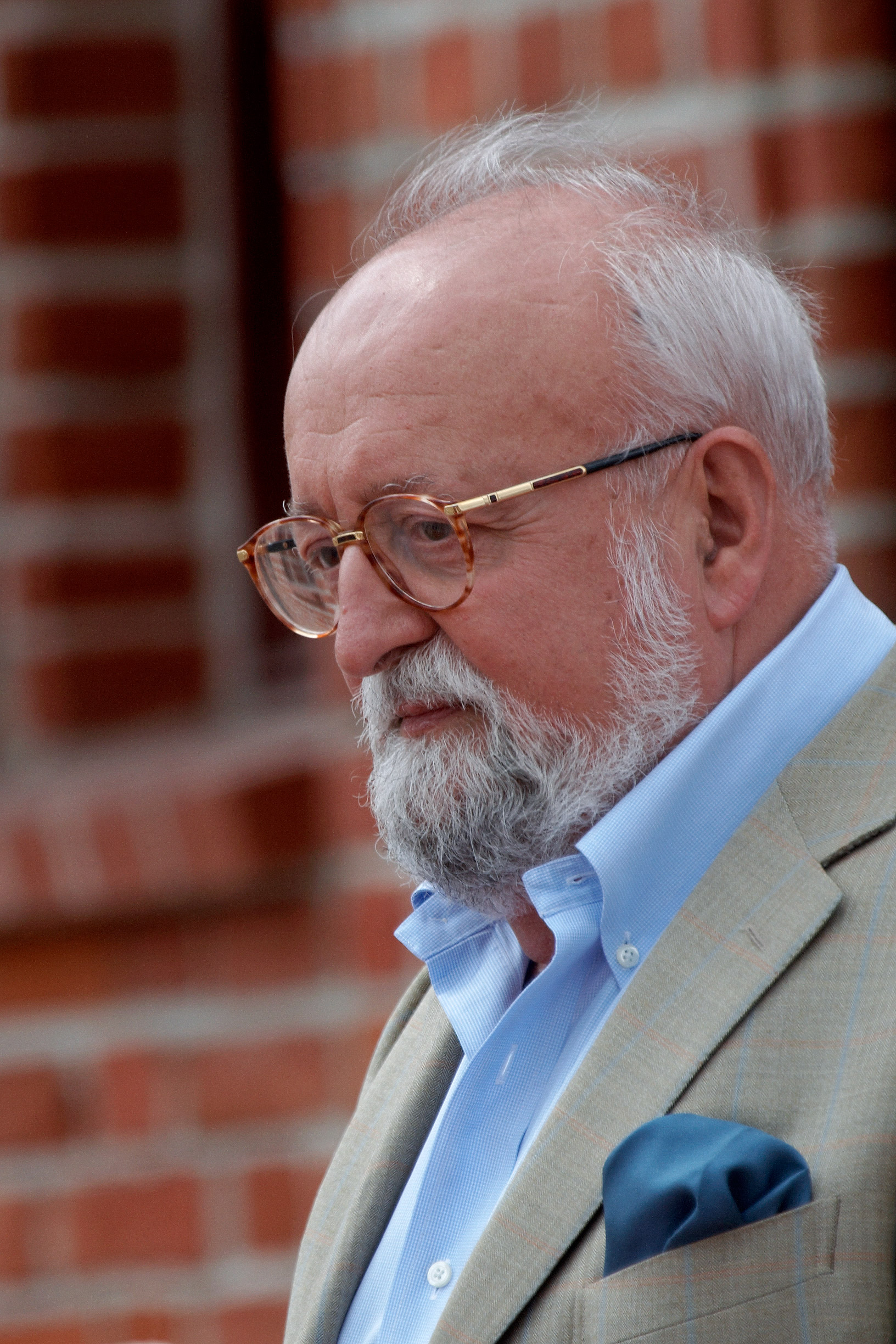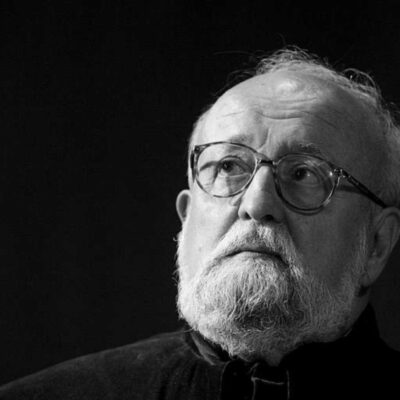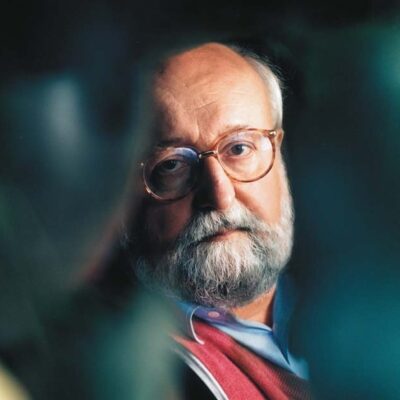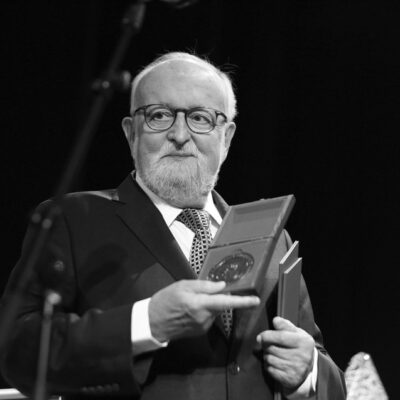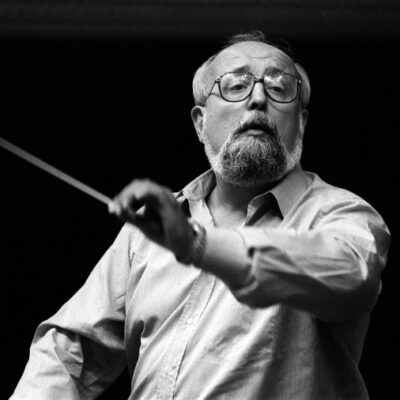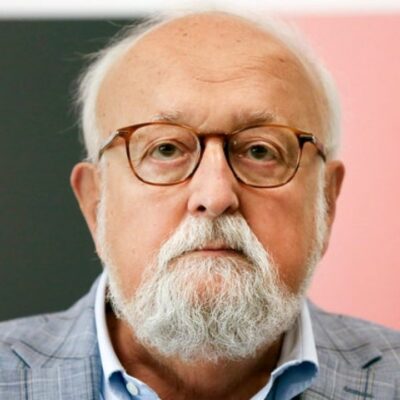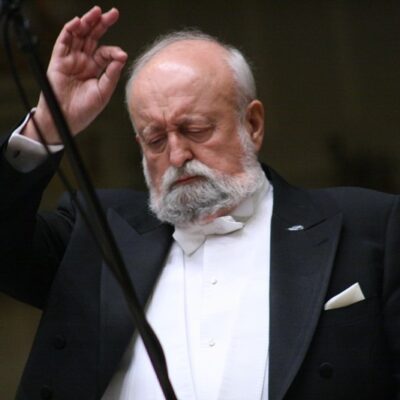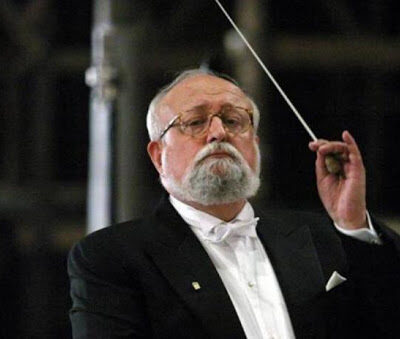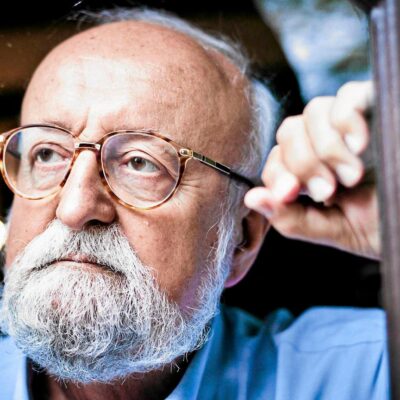KRYSTOF PENDERECKI – EN
| Sinfonia Varsovia | MÉXICO, CIUDAD DE MÉXICO Abril/2011 |
Krzysztof Penderecki
Born November 23, 1933, Debica, Poland
Died March 29, 2020, Kraków)
Outstanding Polish composer of his generation whose novel and masterful treatment of orchestration won worldwide acclaim.
Penderecki studied composition at the Superior School of Music in Kraków (graduated 1958) and subsequently became a professor there. He first drew attention in 1959 at the third Warsaw Festival of Contemporary Music, where his Strophes for soprano, speaker, and 10 instruments was performed. The following year was marked by the performances of both Anaklasis and the Threnody for the Victims of Hiroshima for 52 strings. The Threnody illustrates Penderecki’s skilled and refined treatment of instruments, making use of quarter-tone clusters (close groupings of notes a quarter step apart), glissandi (slides), whistling harmonics (faint, eerie tones produced by partial string vibrations), and other extraordinary effects. The techniques used in Threnody were extended to his vocal work Dimensions in Time (1961) and his operas The Devils of Loudun (1968) and Paradise Lost (1978).
Penderecki’s Psalms of David (1958) and Stabat Mater (1962) reflect a simple, linear trend (letting interwoven melodic lines predominate and determine harmonies) in his composition. The Stabat Mater combines traditional and experimental elements and led to his other well-known masterpiece, the St. Luke Passion (1963–66). In form, the latter work resembles a Baroque passion, such as those by Johann Sebastian Bach, and Penderecki makes use of traditional forms such as the passacaglia (a variation form), a chantlike freedom of metre, and a 12-tone row (ordering of the 12 notes of the chromatic scale) based on the motif B?-A-C-B (in German notation, B-A-C-H) in homage to Bach.
Penderecki’s Canon for 52 strings (1962) made use of polyphonic techniques (based on interwoven melodies) known to Renaissance composers. Yet he also made some use of the techniques of aleatory (chance) music, percussive vocal articulation, nontraditional musical notation, and other devices that stamped him as a leader of the European avant-garde. His later works include the two-part Utrenja (1969–71; Morning Prayer), Magnificat (1973–74), Polish Requiem (1980–2005), Cello Concerto No. 2 (1982; Grammy Award, 1998), the opera Ubu Rex (1990–91), and the choral work Phaedra (2002).
